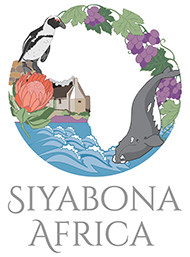
Situated 10km (6.2 miles) offshore and notorious for its former role as a maximum-security political prison, it has been developed as a nature reserve, museum and poignant memorial to South Africa's long liberation struggle.
Robben Island is famous, the world over, like the Siberian gulags, as a place of punishment, exile, isolation and imprisonment. For nearly 400 years colonial and apartheid rulers banished those they regarded as political troublemakers, social outcasts and the unwanted of society to this rocky, 575 hectare outcrop in Table Bay.

Robben means seal in Dutch. White settlers making use of its many resources such as Marine mammals, Penguins, Seashells and Slate, exploited the island in its early history. The island's unwanted inhabitants have included slaves, political and religious Muslim leaders, who opposed Dutch colonialism in East Africa,
African leaders who resisted British expansion in South Africa, leprosy sufferers, the sick, the poor, the mentally disturbed, French Vichy prisoners of war and, most recently, political opponents of the apartheid regime.

Robben Island also functioned both as a prison and as a whaling station in the early 1800's. In 1820, however, the whaling station was closed after prisoners used whaleboats to escape. During the apartheid years, Robben Island became internationally known for its institutional brutality.
Some freedom fighters spent more than a quarter of a century in prison for their beliefs. Yet people such as Nelson Mandela emerged from here to lead South Africa to democracy with a message of tolerance, reconciliation and hope that moved the world.
Political History
Robben Island looms large in South Africa's political history and is now a World Heritage Site, visited daily by tourists from around the world. Interestingly, former prisoners, some of whom spent time with Nelson Mandela, are now employed as tour guides providing accurate and detailed insight into what imprisonment on the island was like during the apartheid era.Ferry Trips to Robben Island

Robben Island Museum
Before you take the tour, visit the Robben Island Museum Information and Ticket Office building at the V&A Waterfront. Guided tours and bus tours on the island include a visit to the prison and the limestone quarry, Garrison Church (1841) Lighthouse (1863) Leper Church (1895) and a Muslim shrine.
Wildlife also abounds and visitors will have the chance to see a variety of Seabirds, African Penguins, Ostriches and Bontebok.

